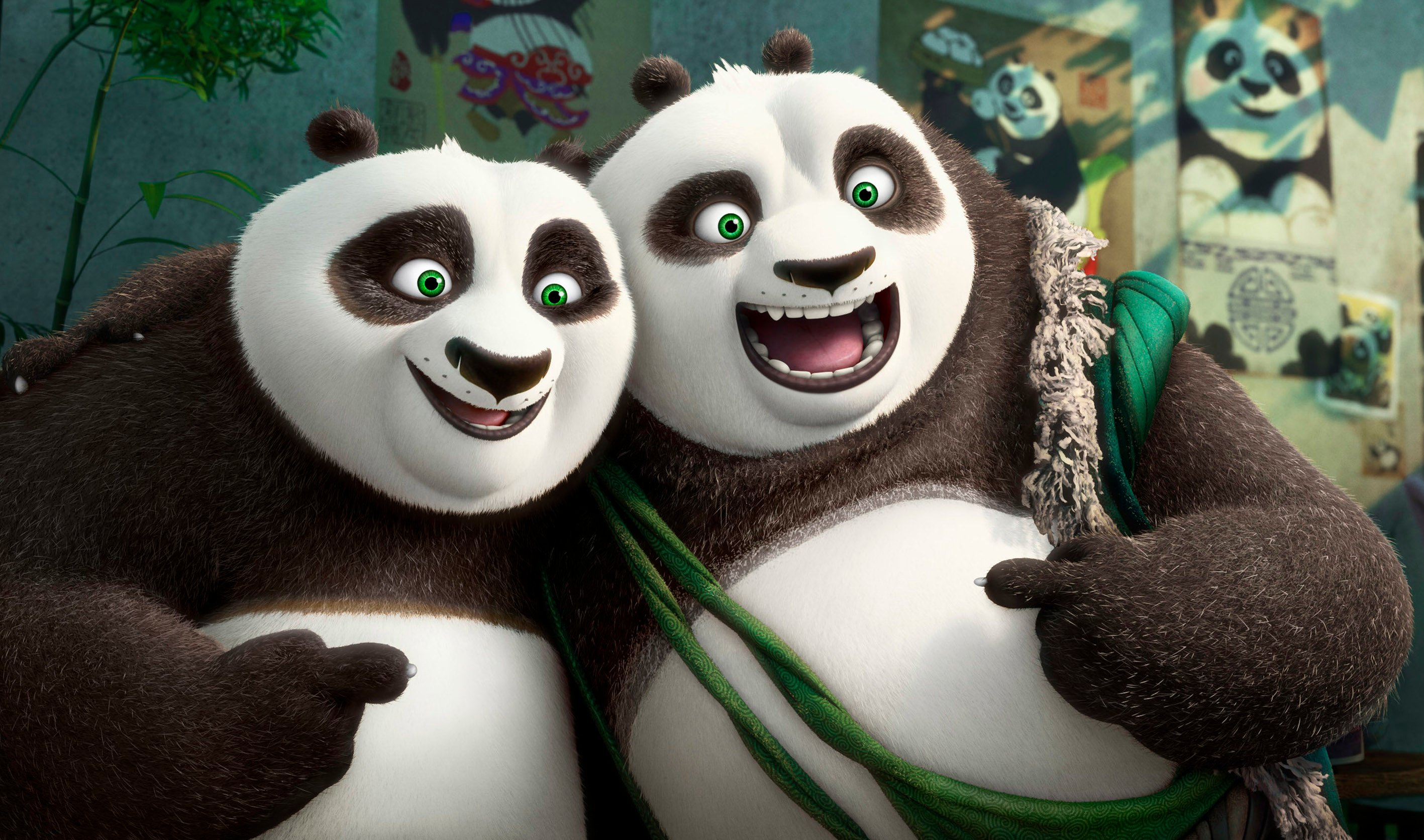There are some things I never thought I’d say like, “Jack Black is in a good movie” and “that movie is ‘Kung Fu Panda 3.’” But alas, here I sit. Today, the pretentious film critic is humbled before corporate America. Today, the pretentious film critic, who calls himself a “critic” but really just enjoys making you feel bad about liking that movie, endeavors to find the words to describe, nay, do justice to the third installment (of a proposed six) in DreamWorks’ “Kung Fu Panda” franchise.
I recently read a review by Variety’s Justin Chang that likened “Kung Fu Panda 3” to George Lucas’s “The Empire Strikes Back,” and, in the spirit of cross-publication camaraderie, I’d like to propose my own trilogic parallel: “Kung Fu Panda 3” is the “Toy Story 3” of “Kung Fu Panda” movies.
Before you ridicule me for my choice of major, allow me to explain. Like “Toy Story 3,” “Kung Fu Panda 3” is a children’s movie about real things, things of (at the very least) marginal significance. “Kung Fu Panda 3” is dumb and inane and includes a cover of “Kung Fu Fighting” by some discount One Direction boy band, but it’s also a deeply moving and emotionally resonant exploration of familial politics, adoption and self-sacrifice.
To be honest, I haven’t the slightest idea what happened in “Kung Fu Panda 2.” Like a good critic, I was going to look it up on Wikipedia, but I was sadly waylaid by an article titled “A Man’s FitBit Captured the Exact Moment He Felt Heartbreak.” I imagine there were some plot developments worthy of mention, but, for the time being, all you need to know is that, at the start of “Kung Fu Panda 3,” Po (Jack Black) is still the dragon warrior and he continues to like dumplings (this second detail is vital to the plot on at least three occasions).
This blissful status quo is imperiled, however, when a new big bad (J.K. Simmons’ Kai) appears to steal everyone’s Chi (per “Kung Fu Panda” mythology, losing your Chi turns you into a jade zombie death machine — as one might expect). Of course, Po has yet to locate said Chi, rendering Kai’s defeat problematic. So, with the aid of his biological father Li (Bryan Cranston), Po embarks on a expedition into the mountains of China, home to an enclave of learned pandas with the wisdom to show Po the ways of the Force.
This, however, proves irrelevant.
What earns “Kung Fu Panda 3” its stripes (or, more aptly, its spots) is a superficially dispensable sub-plot involving Po’s adoptive father, Mr. Ping (James Hong). Mr. Ping, concerned for his son’s safety and skeptical of Li’s character, conceals himself in Po’s belongings for the trek to Pandadise (like paradise, but for pandas). Once there, surrounded by Po’s blood relatives, Mr. Ping begins to question his status as Po’s guardian. A frail, aging goose, Mr. Ping can’t tumble down hills like a rock (as pandas do) and he also fails to put away dumplings without great fanfare (as pandas — also — do). So how can he ever expect to understand his son? Although “Kung Fu Panda 3” is laden with second-rate family-film theatrics, this crisis of fatherhood proves to be its central concern. The result? A surprisingly well-crafted narrative about the difficulties of parenting.
Similarly impressive is the film’s aesthetic. Although generated through computer animation, the look of “Kung Fu Panda 3” oft-recalls the perceptual experience of early multiplane animation or Robert Rodriguez’s “Sin City” franchise. With slick, minimalist backdrops, “Kung Fu Panda” is sumptuously picturesque, a comic book made animate for the big screen. Lapsing into lazy “this-is-in-3D” shenanigans on occasion (specifically in the “spirit realm”), you never quite forget that you’re watching a DreamWorks feature. But, with a Jack Kirby-esque color palette and an attention to depth and texture, “Kung Fu Panda 3” remains an inventive watch from lights out to fade out.
So, yes, the cultural politics of “Kung Fu Panda 3” are more than a shade murky, and I’m certain there are more “important” movies floating around in the cosmos, but I liked “Kung Fu Panda 3.” And that’s good enough for me.
Contact Will Ferrer at wferrer ‘at’ stanford.edu.
